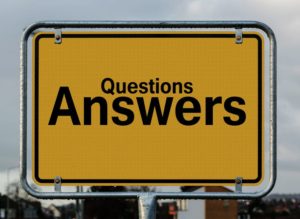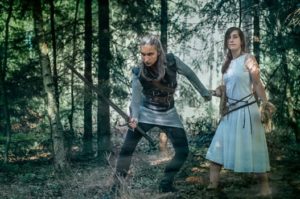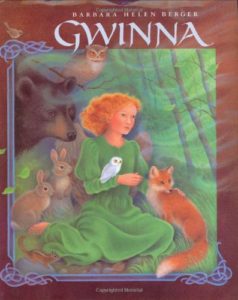 Lately I’ve been participating in an online discussion about a famous series that started off beautifully and ended in a way that irritated many of its longterm fans.
Lately I’ve been participating in an online discussion about a famous series that started off beautifully and ended in a way that irritated many of its longterm fans.
(No, I won’t be mentioning it by name here today. If you’re insatiably curious about this, send me a private message on Twitter and we’ll talk about it there).
The first few books in this series foreshadowed some fabulous plot twists that either never happened or were far easier to solve than anyone would have guessed based on how much time the characters spent worrying about them earlier on.
Several questions have popped into my mind over the years as I’ve listened to fans in this community debate what the ending means, whether or not it was satisfying, and why the author chose to tie everything up the way that they did.
My answers to them have evolved over time, but this is how I’d answer them right now.
Who decides what a story means?
We all do. In no way am I downplaying the importance of understanding what an author meant to say. That would be quite the silly thing for this writer to do!
With that being said, I also believe that an audience plays a key role in understanding any story. How they interpret certain scenes might not necessarily be how the creator thought about them when he or she was in the middle of the writing process.
This is a good thing. Sometimes I’ll write a story that I honestly don’t fully understand. Surprisingly, the writing process can be fickle like that, so I really appreciate it when readers come along with their own interpretations of what certain scenes could have meant.
If you mention a gun in the first scene, must it be fired later on?
Yes.
The difference between a gun in real-life and a gun in a story is that the latter was created for a specific purpose. If the writer was never intending for anyone to use it, why on earth would you add it to the scene? Everything that’s mentioned in a piece of fiction should serve a purpose. If it doesn’t, it doesn’t belong there.
What about red herrings, you might ask? While I’m not a big fan of them in general, distracting the audience from what’s really going on does give them meaning.
Writing about something that you know is a distraction from the beginning is nothing at all like writing about something that doesn’t have any reason for being there in the first place. Red herrings generally leave small clues for the audience about their true reason for existing.
A gun that isn’t fired doesn’t do anything like this. It pops into existence for no reason at all, and it never bothers to correct that no matter how long the plot meanders forward.
As you probably already guessed, this is one of my biggest pet peeves. I am completely comfortable being surprised by how something ends. I am not at all okay with having the wool pulled over my eyes.
What do readers own their favourite authors?
An open mind.
I am still a fan of the series I alluded to at the beginning of this post. I’ve been reading the first few books in it over and over again since I was 12 years old, and that’s not going to change anytime soon.
With that being said, I will always be disappointed by how it ended. There were so many missed opportunities in the last book to tie up all kinds of loose threads.
Now we come to the heart of the matter.
What do authors owe their readers?
Consistency.
I’ve read plenty of other stories whose endings disagreed with me for any number of reasons.The difference between those stories and the series I discussed today is that the former are consistent.
If they mention a gun in the first scene, it is fired at some point. What happens to the bullet varies from one storyline to the next, but it does leave the chamber of the gun. It never sits there unused forever.
To give another example, the main character might die in the last scene of a tale. If they do, though, there will be plenty of foreshadowing along the way to prepare you for it.
Speaking of foreshadowing, some authors use it heavily while others barely touch it at all. I can happily adjust to either technique as long as the narrator delivers on everything they hinted at early one.
All I want is for what’s hinted at in the beginning to be properly carried out by the end. Don’t leave me hanging, and I’ll be a happy reader.











 I have a confession to make today. Listening in on other people’s conversations is one of my favourite things to do, and I don’t think any artistic person should feel the least bit guilty about it.
I have a confession to make today. Listening in on other people’s conversations is one of my favourite things to do, and I don’t think any artistic person should feel the least bit guilty about it. Life Would be Dull Without Storytellers. I believe that poets, musicians, writers, painters, and other creative folks fulfill a vital purpose for our species. We take note of those strange, beautiful, difficult, or thought-provoking moments in life that many other people miss and reinterpret them in all kinds of wonderful ways.
Life Would be Dull Without Storytellers. I believe that poets, musicians, writers, painters, and other creative folks fulfill a vital purpose for our species. We take note of those strange, beautiful, difficult, or thought-provoking moments in life that many other people miss and reinterpret them in all kinds of wonderful ways. I’ve been reading science fiction and fantasy stories for about as long as I’ve known how to read at all. There are so many things I love about these genres, but today I wanted to talk about some of the things that I wish SFF writers would do differently.
I’ve been reading science fiction and fantasy stories for about as long as I’ve known how to read at all. There are so many things I love about these genres, but today I wanted to talk about some of the things that I wish SFF writers would do differently. 3. Aliens Are Always Smarter Than Us
3. Aliens Are Always Smarter Than Us Congratulations!
Congratulations! Memorize the most common kinds of creatures found in the science fiction and fantasy genres. Elves and faeries are almost always trustworthy. Unicorns are harmless to non-virgin humans. Ghosts may be frightening, but they are rarely a genuine threat to anyone. Orcs, zombies, vampires, and goblins are always dangerous unless you happen to wind up in a rare post-apocalyptic romance novel where a member of their species happens to be the main character’s love interest. Once you know who or what you’re dealing with, you’ll know whether to stick with, tolerate, or avoid any non-human characters that may be lurking in the book.
Memorize the most common kinds of creatures found in the science fiction and fantasy genres. Elves and faeries are almost always trustworthy. Unicorns are harmless to non-virgin humans. Ghosts may be frightening, but they are rarely a genuine threat to anyone. Orcs, zombies, vampires, and goblins are always dangerous unless you happen to wind up in a rare post-apocalyptic romance novel where a member of their species happens to be the main character’s love interest. Once you know who or what you’re dealing with, you’ll know whether to stick with, tolerate, or avoid any non-human characters that may be lurking in the book.
 This is a repost from my old blog. I will be back on Thursday with new material.
This is a repost from my old blog. I will be back on Thursday with new material. 
 This is a repost from my old blog. I will be back next week with new material.
This is a repost from my old blog. I will be back next week with new material. 

 It Helps You Find Hidden Gems
It Helps You Find Hidden Gems